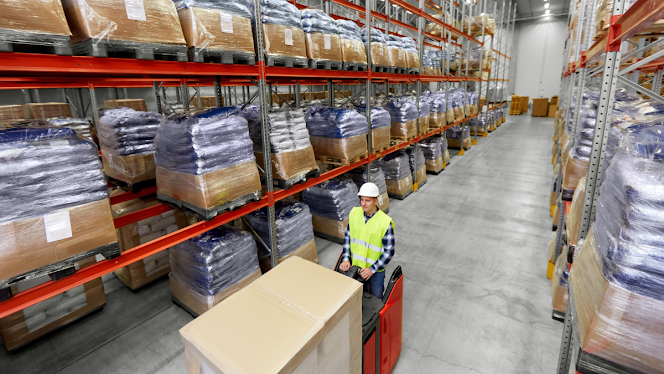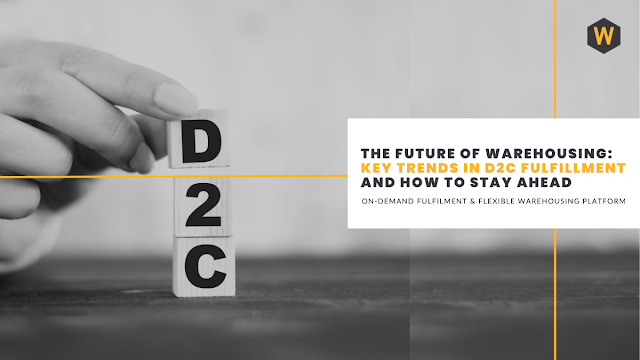3PL vs 4PL: What is a 4PL & How They Differ From 3PLs
As the world advances technologically, businesses are turning to logistics companies to handle their supply chain needs. The logistics industry is divided into two main categories - third-party logistics (3PL) and fourth-party logistics (4PL). While many businesses are familiar with 3PL providers, 4PLs are a relatively new concept. In this article, we will delve into the differences between 3PL and 4PL providers and why it's important to understand them.
3PL vs 4PL: What is a 4PL & How They Differ From 3PLs
Third-party logistics (3PL) providers offer supply chain management services to businesses. These services include transportation, warehousing, and freight forwarding. 3PL providers oversee the entire logistics process, from procurement to delivery. They act as a middleman between businesses and carriers, negotiating rates and ensuring that shipments are timely.
On the other hand, fourth-party logistics (4PL) providers offer a higher level of service than 3PL providers. 4PL providers act as a business consultant, overseeing the entire supply chain process. They work with 3PL providers to manage the logistics process and offer higher visibility and control.
Differences between 3PL and 4PL Providers
The main differences between 3PL and 4PL providers are:
- Level of Service
- Scope of Responsibility
- Degree of Control
- Integration of Technology
- Cost
Level of Service
3PL providers offer a basic level of service, managing the logistics process from start to finish. They handle transportation, warehousing, and freight forwarding. 4PL providers offer a higher level of service, acting as a business consultant and overseeing the entire supply chain process.
Scope of Responsibility
3PL providers are responsible for managing specific functions within the logistics process. For example, they may handle transportation or warehousing. 4PL providers oversee the entire logistics process, from procurement to delivery.
Degree of Control
3PL providers offer a limited degree of control over the logistics process. They manage the logistics process on behalf of businesses but do not have complete control. 4PL providers offer higher control, overseeing the logistics process and working with 3PL providers to ensure that everything runs smoothly.
Integration of Technology
4PL providers typically offer more advanced technology solutions than 3PL providers. They use technology to optimize the supply chain process and provide businesses with real-time visibility into their supply chain.
Cost
4PL providers typically charge more than 3PL providers due to their higher service level. Businesses that require a higher degree of control and visibility may be willing to pay the additional cost associated with a 4PL provider.
FAQs about 3PL vs 4PL Providers
What is a 3PL provider?
A 3PL provider is a company that offers supply chain management services to businesses. These services include transportation, warehousing, and freight forwarding.
What is a 4PL provider?
A 4PL provider is a higher-level supply chain management provider that acts as a business consultant. They oversee the entire supply chain process, working with 3PL providers to manage logistics.
What are the main differences between 3PL and 4PL providers?
The main differences between 3PL and 4PL providers are the level of service, scope of responsibility, degree of control, and technology integration.
What are the main differences between 3PL and 4PL providers?
The main differences between 3PL and 4PL providers are the level of service, scope of responsibility, degree of control, integration of technology, and cost.
What level of service does a 3PL provider offer?
A 3PL provider offers a basic level of service, managing specific functions within the logistics process.
What level of service does a 4PL provider offer?
A 4PL provider offers a higher level of service, acting as a business consultant and overseeing the entire supply chain process.
What factors should businesses consider when choosing between 3PL and 4PL providers?
Businesses should consider the level of control and visibility they require and their budget when choosing between 3PL and 4PL providers.
Conclusion
The logistics industry is constantly evolving, and businesses must stay ahead of the curve to remain competitive. While 3PL providers have been the go-to solution for businesses for many years, 4PL providers are becoming increasingly popular. By understanding the differences between 3PL and 4PL providers, businesses can make informed decisions and choose the solution that best fits their needs.
Whether you choose a 3PL or a 4PL provider, it's important to partner with a reputable logistics company with a successful track record. The right logistics partner can help businesses streamline their supply chain process, reduce costs, and improve efficiency.
In conclusion, understanding the differences between 3PL and 4PL providers is crucial for businesses that want to stay ahead of the competition. Businesses can optimize their supply chain process and achieve long-term success by partnering with the right logistics provider.
3PL vs 4PL: What is a 4PL & How They Differ From 3PLs. Remember this term and choose your logistics provider wisely.



Comments
Post a Comment